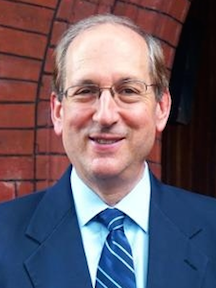The deep roots of Phi Beta Kappa are ones that widen us, and do not narrow us, supporting an ever-evolving institution as we approach our 250th anniversary, in just four years. This spring we witnessed this expansion with the installation of our three newest chapters: Providence College, Rollins College, and the University of North Carolina at Charlotte. We are delighted to recognize and celebrate these institutions as they take their place among the 293 chapters of the Phi Beta Kappa family.
Each installation shared the invocation of 18th-century precepts intertwined with modern insights celebrating the uniqueness of the institutions. Founded in 1885, Rollins is a small liberal arts college in Florida with a mission to educate students for global citizenship and responsible leadership, empowering graduates to pursue meaningful lives and productive careers. A statue of Fred Rogers, one of their famous alumni, graces the campus, and his nephew, Daniel Crozier, an accomplished member of the music faculty, was among the impressive group of liberal arts champions honored with membership in the new chapter.
The University of North Carolina at Charlotte, North Carolina’s urban research university, has grown tremendously since it was established in 1946, rooted in community and committed to giving students a strong foundation in the liberal arts, providing what its mission describes as a “robust intellectual environment that values social and cultural diversity, free expression, collegiality, integrity, and mutual respect.” Providence College, a faith-based school founded in 1917 in Rhode Island, educates students in a rich liberal arts tradition, grounded in the 800-year old Dominican ideal of veritas and a deep commitment to values of academic excellence and service to others.
The success of these three different models—small liberal arts college, public research university, and faith-based institution of higher learning—illustrates the enduring power of the liberal arts and sciences in American higher education, fueled by the intellectual curiosity of our newest members and nourished by the faculty and staff who inspire them. This is the inclusive excellence we champion, made possible by institutions that have as their cornerstone freedom of thought, inquiry, and expression.
I was joined at all three of our installation ceremonies by ΦBK President Peter Quimby, who shared a little of his own intellectual journey. His path was paved by teachers, professors, and mentors who encouraged him to challenge assumptions and acknowledge privilege. We are proud of Peter’s accomplishments and grateful for his leadership.
Installations are momentous occasions in the life of an institution and a community. Each was attended by the president or chancellor of the institution as well as members of the board of trustees, faculty, and of course the inaugural class of ΦΒΚ inductees to the new chapter. The installation of a chapter is the result of years of effort by many college faculty and staff who themselves are Phi Beta Kappa members. Obtaining a chapter also requires the devoted labor and accomplishment of all the faculty, administration, staff, students, alumni, and supporters who have created rigorous academic communities with a deep commitment to excellence in the liberal arts that Phi Beta Kappa embodies and seeks to foster. We trust that the installation of a chapter fulfills the hopes imagined by all who served this cause with commitment and inspiration.
Frederick M. Lawrence
Secretary and CEO




